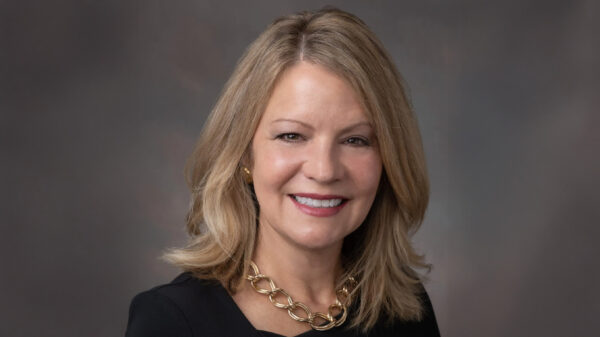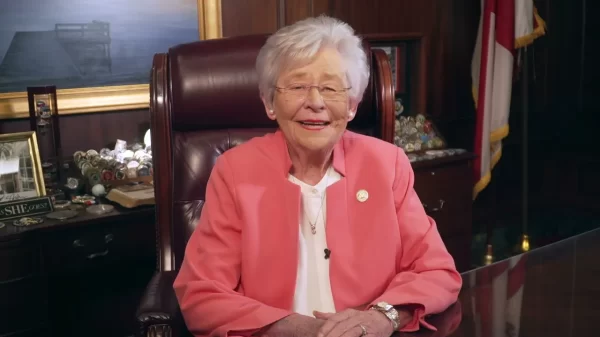By Bill Britt
Alabama Political Reporter
Earlier this summer, US Federal District Judge Myron H. Thompson declared the mental health care system in Alabama prisons to be “horrendously inadequate.” It is likely Judge Thompson will soon rule that Alabama must improve all health care services for inmates at State Correctional facilities. His ruling already has State lawmakers scrambling to find a solution that both meets Judge Thompson’s orders while offering healthcare that is affordable. One company, Centurion, LLC, ready to accept the challenge.
Judge declares Alabama prisons’ mental health care constitutionally inadequate
MHM Services, Inc., and The Centene Corporation are two healthcare companies with strong ties to Alabama, who have joined forces to create Centurion, LLC, which hopes to fill the gap in the ADOC prison health care dilemma.
Since its formation, Centurion has garnered large correctional health care contracts serving the Departments of Corrections in seven states, according to its website. Centurion presently provides managed healthcare services for correctional facilities in Florida, Massachusetts, Mississippi, Minnesota, New Mexico, Tennessee, and Vermont.
Delivering healthcare services to state inmates is a significant challenge, says Steve Wheeler, Centurion’s CEO. It is also compounded by the often remote, rural location of state prisons, the shortage of health care professionals, and the negative stereotypes of the prison environment.
When Florida’s Department of Corrections found itself in a desperate situation in late 2015, it turned to Centurion, which transitioned Florida’s DOC health care services in approximately 50 facilities from a failing system to better services.
The crisis came when former health care provider, Corizon, abruptly canceled its $1.2 billion contract with the state, three years early citing unsustainable corporate losses. Corizon, once the nation’s largest for-profit provider of correctional health services, found itself embroiled in a lawsuit with the SPLC which accused the company, ‘of cutting costs by delaying or denying medical care to prisoners, as several former Corizon employees have alleged in court documents.’
Earlier this year, the Florida Department of Corrections assigned the healthcare services in the remainder of its prison facilities in south Florida to Centurion when yet another contractor, Wexford Health Sources, Inc., was terminated by the state.
Julie Jones, Florida’s Department of Corrections Secretary Julie Jones, says ‘It’s phenomenal what Centurion has been able to do in a short amount of time.’
According to the political news site, Florida Politics, inmate health care in Florida is improving through Centurion’s work. “Four months after taking over health care duties for inmates in the state’s Department of Corrections, Centurion of Florida, LLC is showing marked improvements over its predecessor.
“The company has added more than 500 new staff members, a nearly 15 percent increase, and has almost entirely snuffed out the use of temporary physicians, resulting in inmates having more dedicated long-term caregivers in place,” the report noted.
The company says its model is working according to Centurion CEO Wheeler. “In each of our seven state contracts, we have been able to make improvements to staffing and program operations compared to the contractors we replaced.” Centurion hopes to show it can do the same in Alabama.
Here in Alabama, Judge Thompson will give the State some time to correct what he calls “Unconstitutional” treatment of inmates. But, Gov. Kay Ivey is not waiting for the next shoe to drop, telling APR in June, “I am committed to providing justice to all Alabamians by ensuring constitutionally-permissible conditions for all prisoners. I will be working closely with Commissioner Dunn and the leadership in the House and Senate to address the issues raised [by Judge Thompson’s order].” Gov. Ivey has promised to use, “All appropriate options” to rectify the situation at our State’s corrections facilities.
Judge Thompson has signaled his intent to hold the State responsible for improving the health and health care services for inmates in all areas, not just mental health, which will cost the State hundreds of millions it doesn’t presently have on hand.
Centurion has expressed its willingness to work with Alabama to meet the challenges facing its correctional system “Centurion’s unique managed care offerings do a better job of identifying inmates at risk for high-cost medical services and better coordinates treatment services,” says CEO Wheeler.
In his order, Judge Thompson wrote, “ADOC officials admitted on the stand that they had done little to nothing to fix problems on the ground, despite their knowledge; that those problems may be putting lives at risk….The skyrocketing suicide rate within ADOC in the last two years is a testament to the concrete harm that inadequate mental health care has already inflicted on mentally ill prisoners.”
With Thompson’s gavel ready to drop, Gov. Ivey says she and ADOC commissioner Jeff Dunn are working with lawmakers to find the right solution.
Centurion believes they have the solution.























































